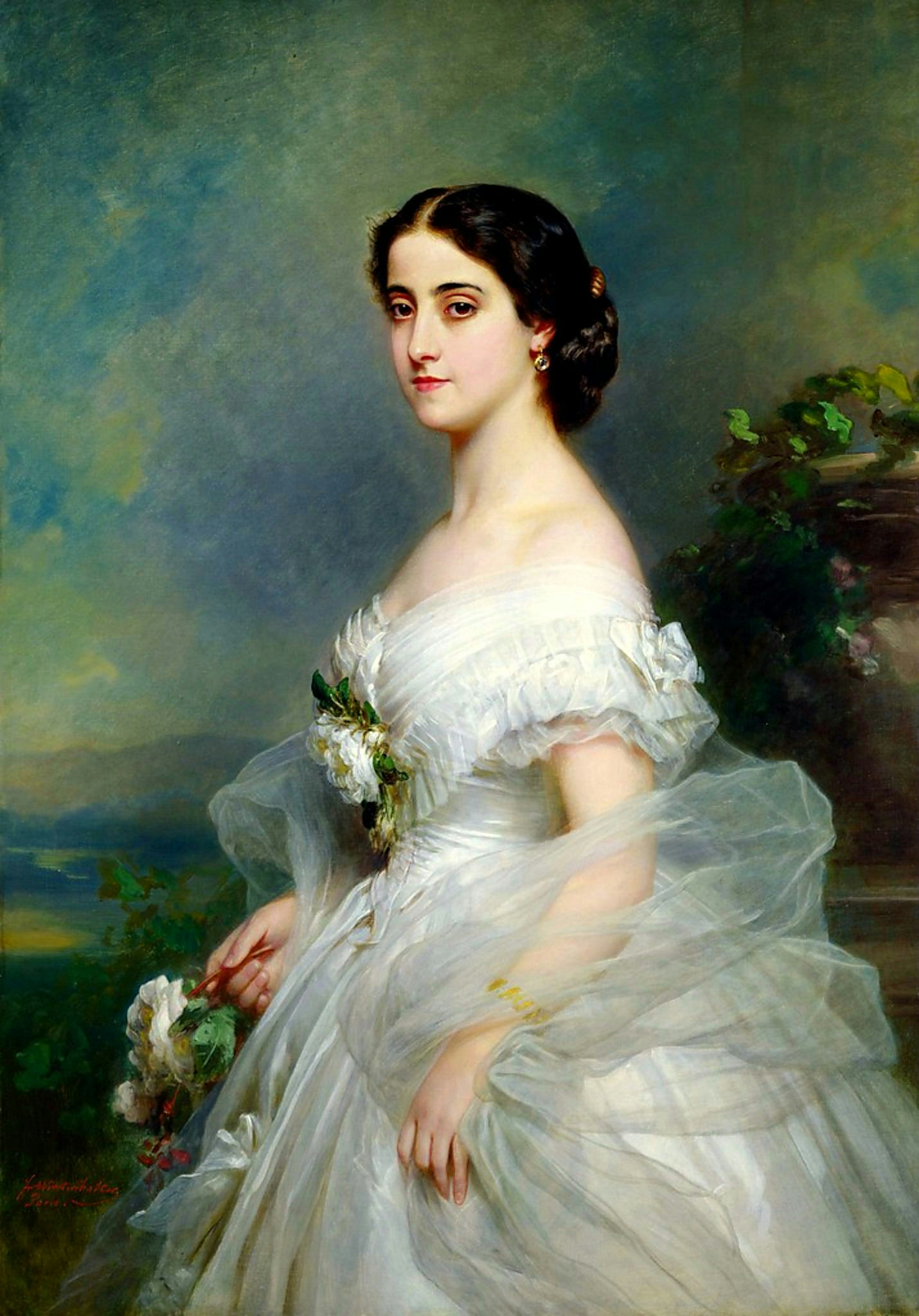Alfons Mucha, Dance (1898)
This puzzle, though admittedly half-witted in its way, is also semi-autobiographical: it's the second I ever made. The picture illustrates 9 Down.
Download this week's crossword:
Solve this week’s crossword online:
Your Custom Text Here

Alfons Mucha, Dance (1898)
This puzzle, though admittedly half-witted in its way, is also semi-autobiographical: it's the second I ever made. The picture illustrates 9 Down.
Download this week's crossword:
Solve this week’s crossword online:

Franz Xaver Winterhalter - Adelina Patti
W.E. Norris (1847-1925) wrote over 40 novels between 1877 and 1925. No New Thing is a romantic comedy in a witty style, with a surprisingly sympathetic portrait of a contemptible young man. The critical comparisons to Anthony Trollope are apt.
“In the Trollopian vein . . . is Mr. Norris’s patient way of letting his characters reveal themselves as the circumstances permit. But whoever may be Mr. Norris’s masters in fiction . . . No New Thing is as thoroughly fresh and original a novel as has been published for a long time. The plot has been constructed with great care, and the writer shows much insight into human nature, and a turn for satire.” Academy, May 19, 1883
“He has caught Trollope’s genial manner in drawing people as they are—men and women who are, on the whole, content with life as they find it, who are not always analyzing their emotions nor craving for a ‘higher synthesis.’ Mr. Norris reminds one of Trollope also in his way of discussing a situation by a series of questions in the form of the argument which would probably have been gone through by the persons whose course of action is to be considered. In humour and gentle pathos Mr. Norris shows resemblances to Trollope. . . . Perhaps the best character in the book is a young man who has many talents and no application, who is completely selfish and always agreeable, and who has a redeeming point in a sort of emotional affectionateness.” Athenaeum, May 26, 1883
“As a piece of style, this novel is wholly exceptional; it is careful, clear, and polished, yet always graceful and easy. To read such writing is a pleasure.” British Quarterly Review, July 1883
Download this week’s novel:
v.1: https://archive.org/details/nonewthing01norr

William-Adolphe Bouguereau, Bacchante (see 67 Across)
I post this puzzle, “It’s an Upset,” to celebrate the fact that my website is now “up.” Fitting, isn’t it? If you persevere in visiting my website, you will find that I am distinguished by nothing so much as my acute sense of the fitting—my command of nuance—my exquisite tact. Tell your friends!
Download this week's crossword:
Solve this week’s crossword online:

Charles James Lewis, Reading by the Window
Mrs. Alexander (1825-1902), born Annie French (her pen name was derived from the first name of her husband, Alexander Hector) wrote over 60 novels between 1854 and 1902. The Wooing O’t, despite its self-consciously traditional plot (the title comes from the mocking chorus of Robert Burns’s comic song “Duncan Gray”), represents social conflict and emotional ambivalence with rare skill.
“Marvelously successful in painting a most repulsive gallery of unmitigated vulgarians, both in the London chemist’s shop in which she launches her heroine, and in the second-rate Parisian circle, in which she accomplishes her introduction to what is called fashionable society.” Athenaeum, September 27, 1873
“The book has a pleasant vivacity and movement, and the worldly, frivolous people who flit about in it are all agreeable, like people one meets at a garden-party, and never cares to meet again, but who chat easily as they eat ices and knock croquet-balls about.” Spectator, October 11, 1873
“The whole character of Maggie is very tenderly touched and very clearly conceived. In so far as she is concerned, The Wooing O’t has the merit of originality. She is flesh and blood, and stands out solidly. . . . Not a line about her is exaggerated.” Saturday Review, November 8, 1873
“There is nothing very startling about the plot, no desperate passions or mysterious relationships, nor do any of the characters bring themselves within the range of the criminal law. But the interest is sustained, the conversations natural, and the characters well drawn.” North American Review, April 1874
Download this week’s novel:
First Edition (1873), British Library
v.1: http://access.bl.uk/item/viewer/ark:/81055/vdc_000000044496
v.2: http://access.bl.uk/item/viewer/ark:/81055/vdc_00000004449C
v. 3: http://access.bl.uk/item/viewer/ark:/81055/vdc_0000000444A2
Eighth Edition (1890), Archive.org